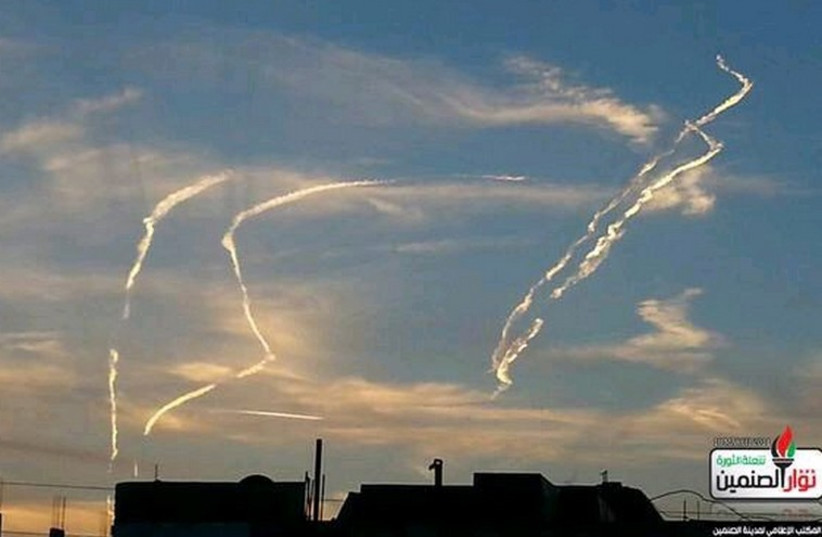Mere hours before Russia launched its full-scale invasion into Ukraine, Israel was accused of striking targets in Damascus. It was a strike that shows that Jerusalem will not allow war in Europe to derail its war-between-wars campaign against Iran.
Syria’s SANA state media said three Syrian soldiers were killed, and material damage was caused by the strikes that targeted sites near Damascus Airport and other locations.
The airstrikes came one day after Israel allegedly fired surface-to-surface missiles at an observation post and other targets near Quneitra on the Syrian Golan Heights. Following the strike on Quneitra, Israel reportedly dropped leaflets on Syrian Army positions warning that they could be targeted for collaborating with Hezbollah.
Read more on the Ukraine-Russia War:
Israel was also accused last week of striking a number of sites near Zakyah, south of Damascus, by surface-to-surface missiles. The week before saw several other airstrikes, one of which set off incoming rocket sirens near Umm el-Fahm and other towns in the northern West Bank after a Syrian anti-aircraft crossed into Israeli airspace.
The rocket exploded in the air, with shrapnel falling in the area of Jenin.

In response to the anti-aircraft missiles, the Israel Air Force struck a number of surface-to-air missile batteries belonging to the Syrian military, including the one which fired toward the jets. One soldier was killed and five others were wounded.
Israel has been hitting targets in the war-torn country for close to a decade with hundreds of airstrikes, in its war-between-wars campaign against Iranian entrenchment and weapons smuggling to Hezbollah. However, the increase in strikes comes as Israel faces uncertainty surrounding Russia’s possible reaction should Israel support Ukraine.
Russia is enormously influential in Syria, where they intervened in 2015 on the side of President Bashar Assad. Israel and Russia have a deconfliction mechanism in place to make sure that Moscow is informed ahead of Israeli action.
With the tensions rising between Moscow, Kyiv and the West, Jerusalem has been extremely pragmatic in deciding how it responds to the crisis. But Israel understands that it cannot stop its military action against Hezbollah and Iran.
While it is unlikely that Russian forces in Syria would intercept Israeli jets or missiles, Moscow could turn a blind eye to Iranian and Hezbollah actions in the country. They might even allow Syrian troops to operate the advanced S-300 and S-400 missile defense batteries that until now were manned by Russian troops – who have not pressed the button to launch surface-to-air missiles toward Israeli jets.
It could be that the airstrikes carried out by Israel in Syria in the past two weeks were an indication by Jerusalem that it would continue its military action despite the war in Eastern Europe because for Israel, there are some targets that might threaten its citizens and need to be destroyed.
It might also be that with Russia busy in Eastern Europe, Iran and its proxies might take the opportunity to increase its aggressive moves in Syria, be it an increase in smuggling weapons to Hezbollah or even launching more unmanned aerial vehicles into Israel.
With the West focused on Ukraine, Iran might also see an opening to accelerate its nuclear program.
That is something that Jerusalem will not accept.
Walking a thin diplomatic tightrope while increasing military pressure on Iran and Hezbollah will be something that Israel will have to excel in for the coming weeks, if not months, of the war that broke out on Thursday morning.
